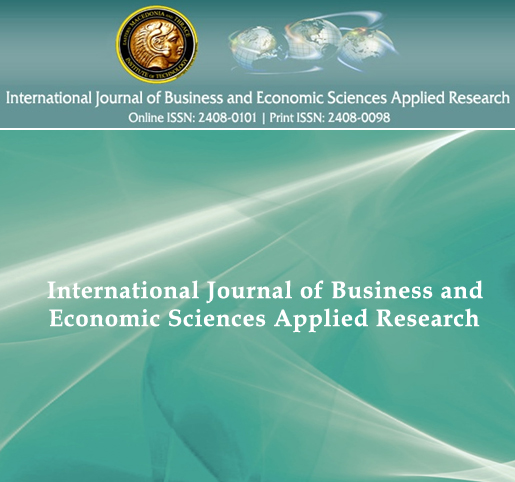Culture as a Determinant of Competitive Advantage in Trade
Culture as a Determinant of Competitive Advantage in Trade
Author(s): Dekuwmini Mornah, Raymond MacDermottSubject(s): Economy
Published by: Τεχνολογικό Εκπαιδευτικό Ίδρυμα Ανατολικής Μακεδονίας και Θράκης
Keywords: culture; bilateral; trade; competition; management
Summary/Abstract: culture, bilateral, trade, competition, managementPurpose: Culture plays a role in international trade much as it does in any other human activity. Attitudes and ways of life do matter even when a lucrative business opportunity exists, especially across national borders. This paper examines which aspects of culture give countries competitive edge in terms of bilateral trade performances. Specifically, do relatively higher scores in certain cultural dimensions have a deterministic effect on bilateral trade performance (terms of trade or bilateral trade balance)? Methodology: We adopt empirical econometric estimation methods on trade data covering 59 countries and 29 years combined with the nine "Global Leadership and Organizational Behavior Effectiveness (GLOBE)" culture dimensions, Our estimations were based on Robust Regression Analysis and Ordinary Least Squares methods. Findings: We find that indeed, certain aspects of culture enhance bilateral trade performance/competitiveness. Performance Orientation, Future Orientation, Institutional Collectivism, Gender Egalitarianism, Power Distance and Uncertainty Avoidance improve bilateral trade performance while Assertiveness, Humane Orientation and In-Group Collectivism impair it. Research limitations: Direct measures of international competitiveness are not readily available. So we had to adopt proxies for measuring international competitiveness. Implications: Many countries want to boost international competitiveness. However, in the current world order with multilateral trade agreements under the WTO and increased transferability of technology, governments are clipped in terms of available trade policy options. By understanding which aspects of culture promote bilateral competitiveness and performance, governments could take steps to maximize their competitiveness. For instance, when negotiating trade treaties, policy makers may benefit from the knowledge of culture's impact on competitive advantage when selecting partners. Originality/value: To the best of our knowledge, this is the first paper to empirically examine how differences in national culture using the GLOBE dimensions affect bilateral and national competitiveness in international business.
Journal: International Journal of Business and Economic Sciences Applied Research (IJBESAR)
- Issue Year: IX/2016
- Issue No: 1
- Page Range: 69-76
- Page Count: 8
- Language: English

